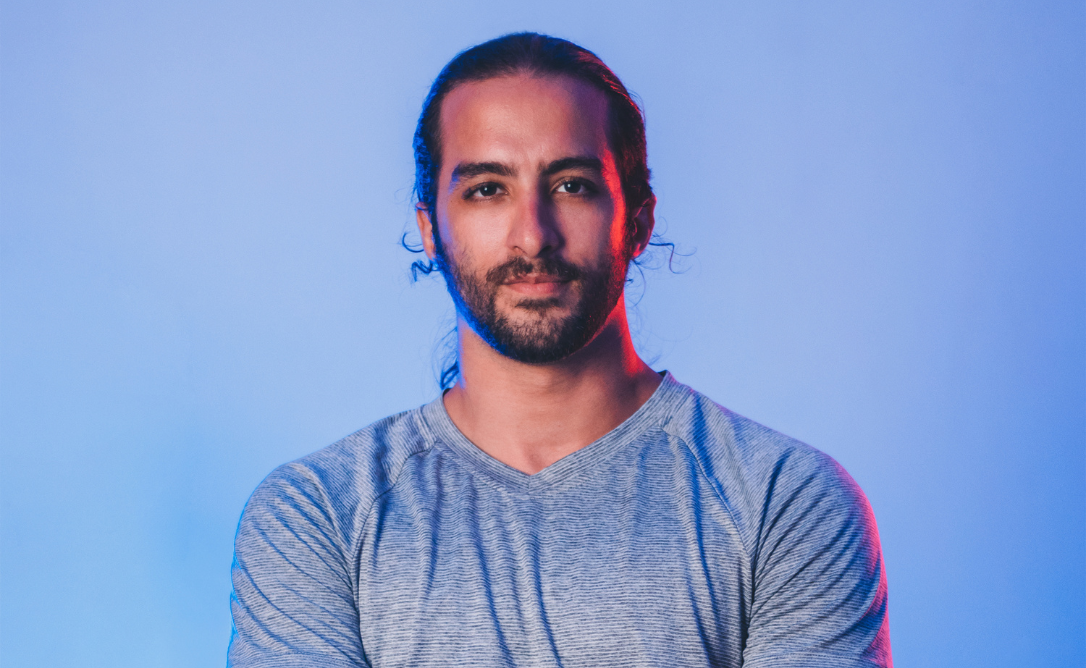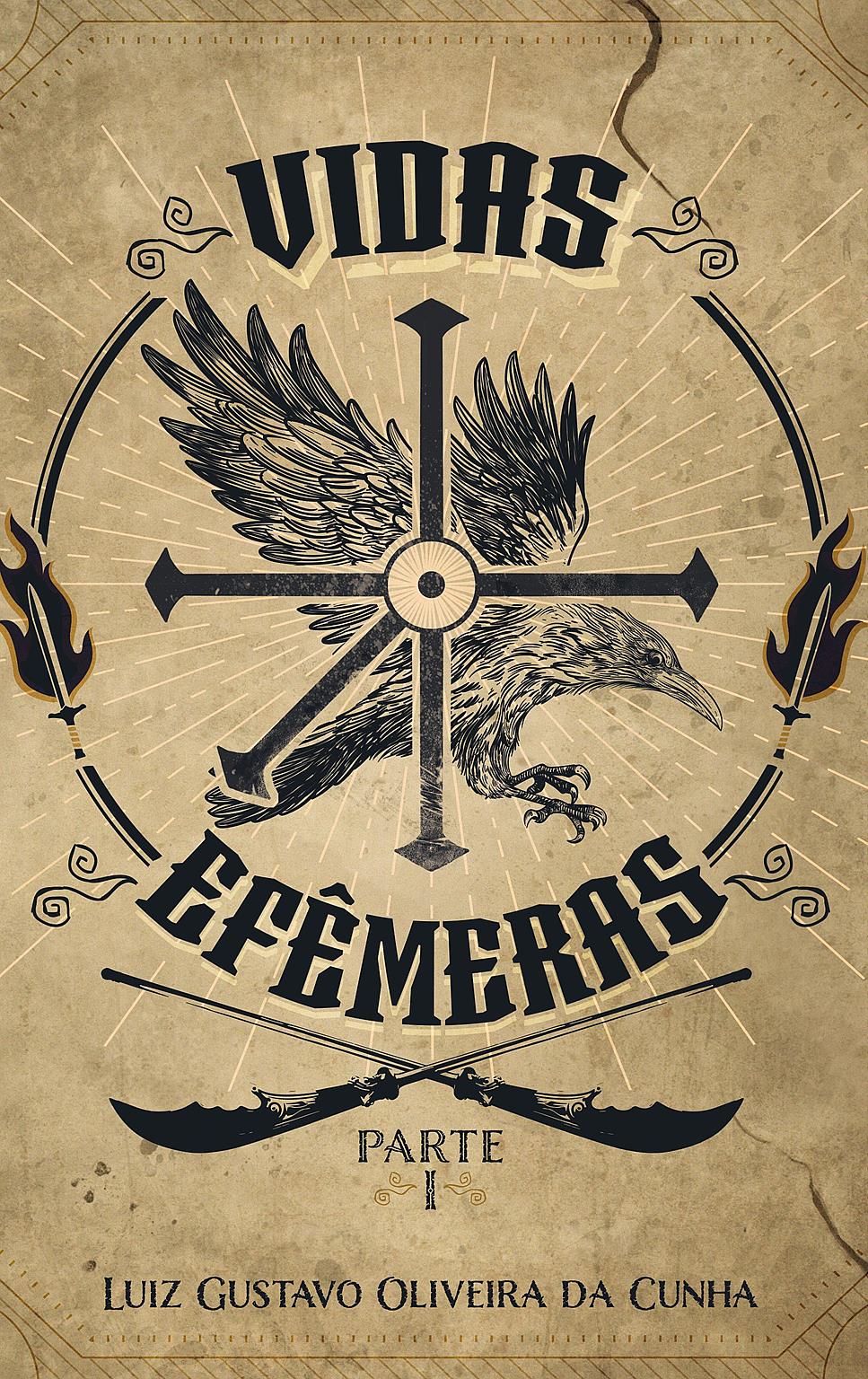
In a world devastated put one Prague bloodthirsty and marked put intrigue and decadence , mercenary commander Elena leads the Brotherhood of Ravens in one mission that goes beyond survival : facing you ghosts from his past and face an ancient evil. Thus begins Ephemeral Lives : Part I, the author ‘s debut novel Luiz Gustavo Oliveira da Cunha , who combines dark fantasy , dilemmas morals and atmosphere philosophical inspired in Lovecraft and Dostoevsky .
Elena is not only a military leader, but a woman torn apart by the pain of loss and a thirst for revenge. What was it like for you to build this character so driven by intense feelings and, at the same time, forced to maintain control in the face of chaos?
Well, the method of building a character is not as objective and directed as a civil engineer who builds a building or a software engineer who creates a website. It is a much more intuitive and mysterious process. It is nothing more than an idea that emerges and fascinates, and that is why the author uses it.
The plague red turns people into bloodthirsty creatures, but the real evil seems to come from within—from guilt, from rage, from memory. Where did the inspiration for this duality between external threat and internal conflict come from?
This is not so much an inspiration, but a holistic way of understanding human conflicts. We are constantly dealing with conflicts of internal and external origin, and although the first type is not so obvious, it does not make it any less harmful. In fact, in many cases it is internal conflicts that give us the greatest battles of our lives. lives . In this way, when Internal and external conflicts are exposed side by side in the narrative, which ends up making the story fascinating and exciting, while allowing the reader to empathize and get closer to the characters that make it up.
When diving in themes such as social decline, ancestry and the weight of decisions, your narrative seems to want to do more than entertain: it provokes. Do you feel more compelled to tell a good story or to make the reader reflect?
A good story is always the goal, and should continue to be the goal. A good story entertains, but it also makes you think, while also showing the reader a little bit about yourself. So, if a writer has the desire to create a good story, he ends up doing all of the above and more. However, if he has the specific desire to convey a message, he often fails to produce a good story, and ends up failing to convey any message at all.
The book loads clear influences from Dostoevsky and Lovecraft, two authors who explore the depths of the mind and the supernatural. How did these references help shape the symbolic and philosophical universe of Proelia?
The inspirations I took from these two authors gave me great methods to expand my writing in different ways. Lovecraft inspired me with his exploration of the fear of the unknown and evils that are greater than comprehension, which ends up being seen in the theme of the main conflict of the book and the series. In the chapter called “The Man in the Cave” the reader will see this inspiration more clearly.
In Dostoevsky’s case, I was greatly inspired by the way he explored small characters who seemed unimportant, and by the way he studied the spirits of his main characters in impressive depth. I believe that this is the best way to create a bond between readers and the characters in a story: to expose, through intimate thoughts and explicit actions, the soul of each important character, like a spiritual autopsy.

You proposes a fantasy that flirts with philosophy — about identity, justice and the very ephemerality of life. At some point, were you worried that this density might alienate some of the audience? Or was this a conscious choice from the beginning?
It is a risk , it is true, but a risk that must be taken. I am of the opinion that art should be produced as a pure expression of the human soul, anything that interferes with this should be immediately rejected. That is why I am also a supporter of the idea that an artist, whatever type he may be, should have a separate job, so that business decisions do not impact his pure expression. Obviously, this is just a personal ideal and a recommendation, it does not apply to all cases and all people. But for me, if the expression is not pure and unadulterated to a large extent, I tend to avoid it. Therefore, keeping in mind this personal morality, I always seek to expose what is true to me , even if its form may alienate some people. It is not very different from the way we make bonds of love and friendship.
The narrative intercalates action , dreams and monologues, and this also seems to affect the pace of reading. How did you balance the impulse to tell an epic saga with the desire to delve deep into the psyche of the characters?
I believe that one compliments the other, so there is no balance to be made . Imagine one of the great myths of human history. Think of the story of Hercules and his twelve labors. Now imagine that you know him personally. You know his parents, his neighbors, you know what irritated him as a child, you know what games they played together, you know his funny stories and his sad days, you know how he thinks and how he acts, you have a good idea of every thought that ran through his head just by the way they describe his actions in each description of his deeds. Wouldn’t that raise the story to a new level? I think it would, and it is this new level that I seek to reach.
The relationship between Elena’s legacy and her father’s past creates a powerful tension between memory and destiny. Do you believe that the ghosts we carry define us, or is it possible to escape them without lose who are we ?
I believe that the Our ghosts are part of us, but it is possible to live without them taking control of our spirit. However, to do so, we need to face them. And this confrontation can cost us a lot.
Ephemeral Lives ” is a dark fantasy, but it carries a very human question: what makes life worth living? In your creative process, did this question also cross your mind personally? What did you discover while writing?
Certainly . In the process of writing this book I have come across many versions of this question, and I have found many answers, but none of them do I have enough confidence in to give you such a firm and categorical statement. I will say only this: the human spirit is incredibly resilient as long as it has an answer to the question “Why?” And perhaps in the answer to that question lies all the dignity we need .
Follow Luiz Gustavo Oliveira da Cunha on Instagram


